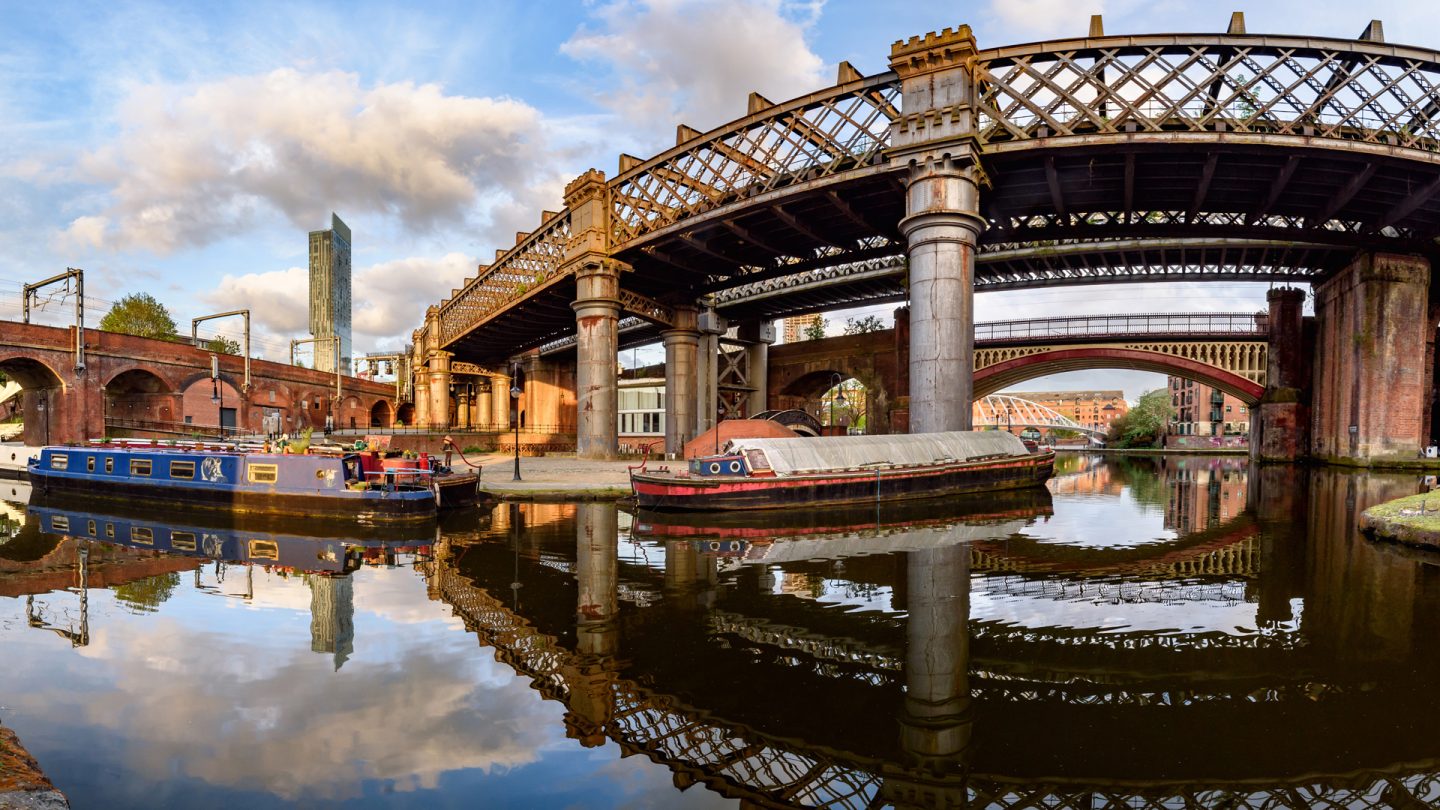
Released Under Investigation (RUI) - expert advice and representation
Put your trust in Clifford Johnston & Co.
- Specialist RUI Legal Advice & Representation
- Law Society Criminal Litigation Accreditation
- Proactive Criminal Allegations Defence
- Contact our Criminal Investigation Solicitors
Released Under Investigation
Have you been interviewed by the police and released under investigation (‘RUI’)?
When an individual is arrested and interviewed under caution, the police may not always reach an immediate decision about whether to charge, caution, or discontinue the investigation.
In such cases, they have two main options to allow further inquiries to continue. One option is to release the suspect on bail, which may be subject to certain conditions such as curfews, residence, reporting to the police station and/or restrictions on contact with others.
Alternatively, the suspect may be released under investigation (‘RUI’), which leaves the investigation open-ended. A suspect who is RUI’d has no restrictions placed upon them which, unfortunately, can often result in significant delays before the police make a decision on charge.
If you are released under investigation, you still face uncertainty, with the prospect of further questioning, as well as the possibility of being charged with a criminal offence. It is therefore crucial to seek expert legal advice.
At Clifford Johnston and Co., our criminal investigation solicitors take a proactive approach to each investigation. With a reputation for providing a robust defence before the criminal courts, our primary focus is to make a successful ‘representation against charge’ bringing the investigation to an end without charge or prosecution.
Key Differences Between RUI and Police Bail
Released Under Investigation (‘RUI’) and police bail are mechanisms which the police use to release suspects after they have been interviewed by the police, and whilst investigations continue. However, they differ in significant ways.
When a person is Released Under Investigation, no specific conditions or time limits are imposed. This means the individual is free to go about their daily life without restrictions, but the investigation remains open, and the police can revisit the case at any time.
In contrast, police bail often comes with conditions designed to manage potential risks. These conditions might include restrictions on travel, prohibitions on contacting certain individuals, or regular reporting to the police. Such measures are typically applied when there are concerns about the suspect reoffending, failing to appear if required, or attempting to interfere with witnesses or evidence.
What Does It Mean to Be Released Under Investigation?
When the police release a suspect under investigation, they continue their inquiries into an alleged offence without imposing the conditions associated with police bail. Unlike police bail, there are no restrictions placed on your movements or behaviour, and no set timeframe for the investigation to conclude. This is commonly referred to as being “RUI’d.”
This often means that there is no clear timeline for the resolution of the case, which can leave individuals in a state of uncertainty for extended periods.
What Happens During the Investigation?
The police may take various steps as part of their investigation, which could include:
- Seizing and analysing personal property: Items such as mobile phones, laptops, and/or other electronic devices may undergo forensic examination.
- Interviewing witnesses: Statements may be gathered from witnesses and/ or other parties involved.
- Collecting CCTV or other evidence: The police may review footage and/or request evidence from third parties.
These processes can be delayed by resource constraints, case complexity, and/or prioritisation by the investigating officers.
How Long Will the Investigation Last?
Unfortunately, there is no fixed time limit for a police investigation when you are released under investigation. Some cases are resolved within weeks, but more complex investigations, particularly those requiring forensic analysis of electronic devices, can extend beyond a year.
While you are not required to report to the police station or adhere to conditions during this time, the investigation remains active, and the police may contact you for further questioning or, in some cases, arrest you again.
Can You Travel Abroad While Released Under Investigation?
As there are no conditions attached to being released under investigation, you are free to travel abroad. However, we advise informing the investigating officer of your travel plans to ensure there are no updates to your case which could impact your plans.
Will RUI Appear on a DBS Check?
Being released under investigation does not appear on a basic or standard DBS check. However, it may be disclosed on an enhanced DBS check at the discretion of the police. This is generally decided based on the relevance of the investigation to the role being applied for and whether its disclosure is proportionate.
The police will usually allow you to make representations before making such disclosure.
Why Do Investigations Take So Long?
Delays in police investigations are often caused by a combination of factors, most of which are beyond the suspect’s control.
Forensic analysis, particularly of electronic devices such as mobile phones or computers, can face significant backlogs, with results often taking months to process. Similarly, cases involving a high volume of evidence require meticulous review to ensure all materials are properly examined and considered. Resource constraints within police departments can also slow progress, as investigators may have competing priorities and/or limited availability.
The absence of a clear timeline for resolution can be particularly challenging for suspects and their families, leaving them in a prolonged state of uncertainty and stress.
What Happens After the Investigation?
At the conclusion of the investigation, the police may take one of the following actions:
- No further action (‘NFA’): The investigation is closed without charges being brought.
- Charging decision: The Crown Prosecution Service (CPS) may decide to prosecute you. If they do, you will either receive a court summons (postal requisition) to your home address or, alternatively, you may be invited to the police station to be formally charged.
In some cases, the CPS may request additional evidence from the police before making a decision.
Each of these outcomes has significant implications, underscoring the importance of obtaining legal advice at the earliest opportunity.
The Impact of RUI
Being released under investigation can place an immense emotional and psychological burden on suspects. Without a clear timeline, individuals often feel as though their lives are on hold, facing uncertainty about the outcome and any potential restrictions, such as property not being returned and/or concerns about applying for jobs.
At Clifford Johnston & Co., we understand the frustration and anxiety that comes with this process. Our solicitors are here to guide you, protect your rights, and ensure the investigation is resolved as swiftly as possible.
How Clifford Johnston & Co. Can Help
Our criminal defence solicitors take a proactive approach to pre-charge investigations. By engaging with the police early on, we can help shape the investigation, provide relevant evidence, and ensure your voice is heard.
We have extensive experience handling cases at all stages of the criminal justice process. Our expertise spans everything from minor offences to serious and complex allegations. With over 30 years of experience and accreditations including the Law Society’s Criminal Litigation Accreditation, you can trust us to provide the highest standard of representation.
Frequently Asked Questions
What is the difference between being released on bail and released under investigation?
When a suspect is released on bail, they must comply with conditions set by the police or court, such as residing at a specific address, avoiding certain individuals or areas, or adhering to a curfew. These conditions aim to manage risk, ensure cooperation, and protect the investigation.
In contrast, being released under investigation (RUI) imposes no conditions or restrictions. The investigation continues, but there is no obligation to report to the police station or follow specific rules during this time.
If I am released under investigation, do I have any bail conditions?
No, there are no conditions attached when you are released under investigation. This means you are free to go about your life without restrictions. However, the police may still contact you for further questioning and/or take additional investigative steps.
If contacted by the police, what should I do?
If the police contact you during the investigation, it is essential to seek legal advice immediately. Do not provide additional information, attend interviews, or make statements without consulting a solicitor. Our experienced criminal defence team can ensure your rights are protected and advise on the best course of action.
How long will the investigation take?
The duration of an investigation can vary greatly. While some cases are resolved in a matter of weeks, others—particularly those involving forensic analysis or complex evidence—can take months or even years. Unfortunately, there is no statutory time limit for investigations when you are released under investigation.
Can the police keep my property during the investigation?
Yes, the police can retain any items they believe are relevant to their investigation. This might include electronic devices, documents, or other personal property. Such items may only be returned when the investigation concludes, or earlier if deemed unnecessary for evidence.
Can I travel abroad if I am released under investigation?
Yes, there are no restrictions on your ability to travel when released under investigation. However, it is advisable to notify the investigating officer of your travel plans to ensure there are no changes to your case that might require your presence.
How long does it take for electronic devices to be forensically analysed?
Forensic analysis of electronic devices can take several months due to backlogs in processing and the complexity of the evidence. It is not uncommon for investigations involving digital evidence to extend beyond a year. Our solicitors can liaise with the police to monitor progress and advocate for the timely return of your devices.
Why have I been released under investigation?
The police may release a suspect under investigation when they require more time to gather evidence and/or seek legal advice from the Crown Prosecution Service (CPS). This often occurs in cases where the evidence is incomplete or additional forensic analysis is needed.
What happens when the investigation ends?
At the conclusion of the investigation, the police will either:
- Take no further action (NFA), effectively closing the case; or
- Refer the case to the CPS, who will decide whether to bring charges.
I would like Clifford Johnston & Co. to represent me, but I had another solicitor for my initial interview. What can I do?
You are entitled to change solicitors at any stage of the process. Simply contact us, and we will handle the necessary arrangements to take over your representation. Our criminal defence team will review your case thoroughly and provide expert legal advice tailored to your circumstances.
For more information, reach out to Clifford Johnston & Co. today. We are here to provide guidance and ensure you receive the best possible defence.
Contact Our Criminal Defence Solicitors
If you or someone you know has been released under investigation, do not face the uncertainty alone. Clifford Johnston & Co. provides expert legal advice to protect your rights and work towards a swift resolution.
We are conveniently located in Stockport (Cheshire) and Manchester and offer assistance across the Northwest and the whole of England & Wales. For immediate support, contact our Criminal Solicitors to discuss your situation.
Call us today to discuss your case confidentially. Together, we can help you move forward with confidence.

Need some professional advice?
Do you have any issues that you are worried about? Contact our professional team for a free, no-obligation informal discussion, where we can discuss your particular requirements in greater detail.
















